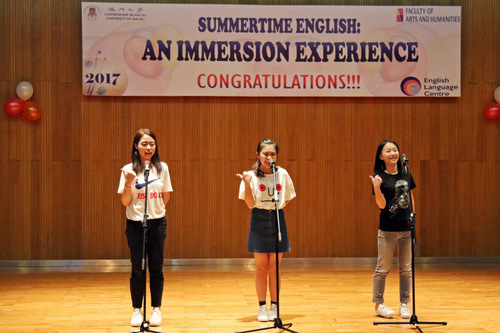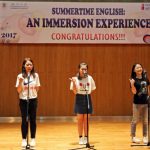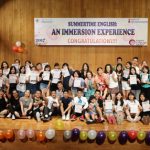 Participants perform in English
Participants perform in English
The 2017 Summertime English: An Immersion Experience (STE), organised by the University of Macau’s (UM) English Language Centre (ELC), attracted over 76 secondary school students from Macao and overseas. Participants said the camp was inspiring and boosted their confidence in speaking English.
The five-day camp encouraged the use of English in day-to-day interactions through a series of creative and art-themed activities both inside and outside the classroom. Students were exposed to an English-friendly living environment and learnt new knowledge every day. They also experienced university life in UM’s residential colleges, where they had the chance to practice their social skills.
Some participants said that each day in the camp was fun and special and they learnt how to use new words properly from making artworks, acting out drama scripts, and singing and writing slam poems. Some participants reported that the way of teaching and learning they experienced in the camp was different from the traditional way of teaching where teachers give lectures and students takes notes, adding that the training at UM was more interactive and provided a good opportunity for them to learn how to communicate with people from different cultures in English.
‘My goal for this programme was to help students express themselves better in English through the daily activities done with the trainers, camp leaders, and other participants. And it was rewarding to see them doing just that at the end of the camp,’ said Vivian Chaplin, one of the coordinators of the programme. The STE programme was led by a group of talented English language trainers from the United States. This was the second edition of the STE programme.
View gallery


